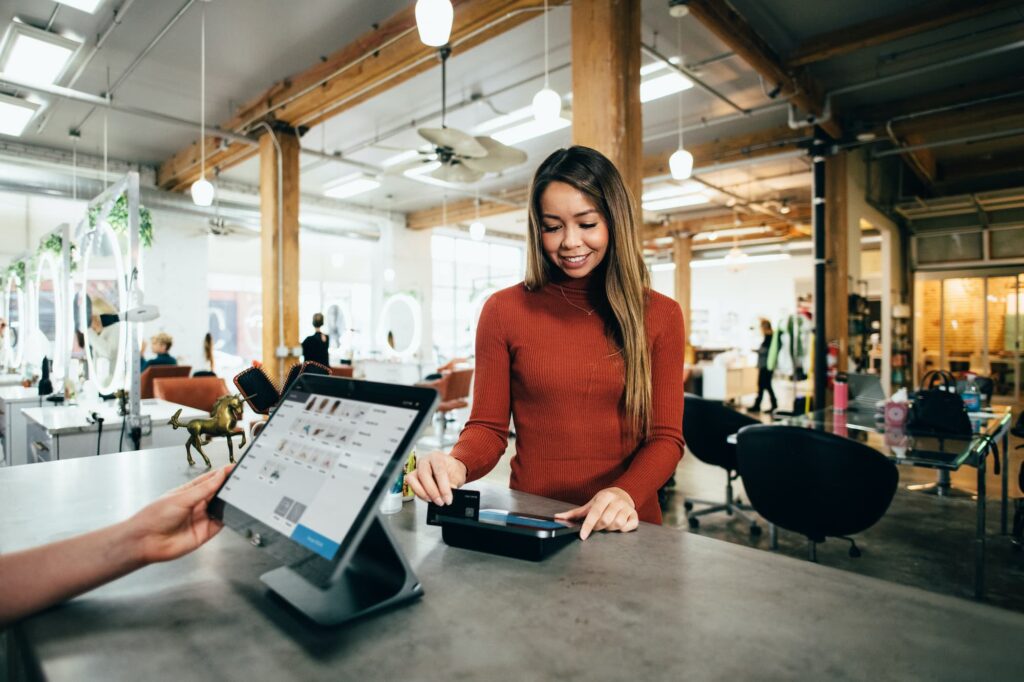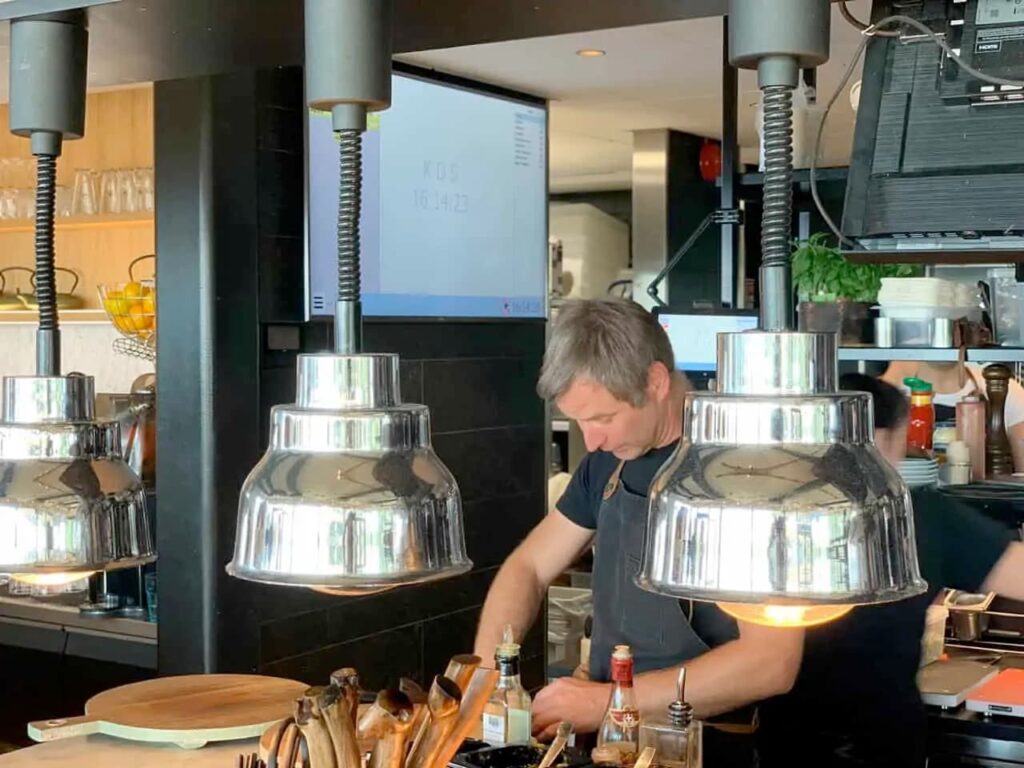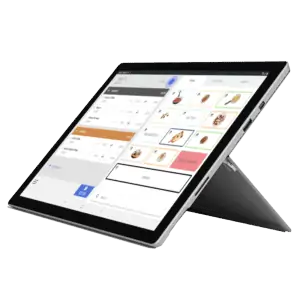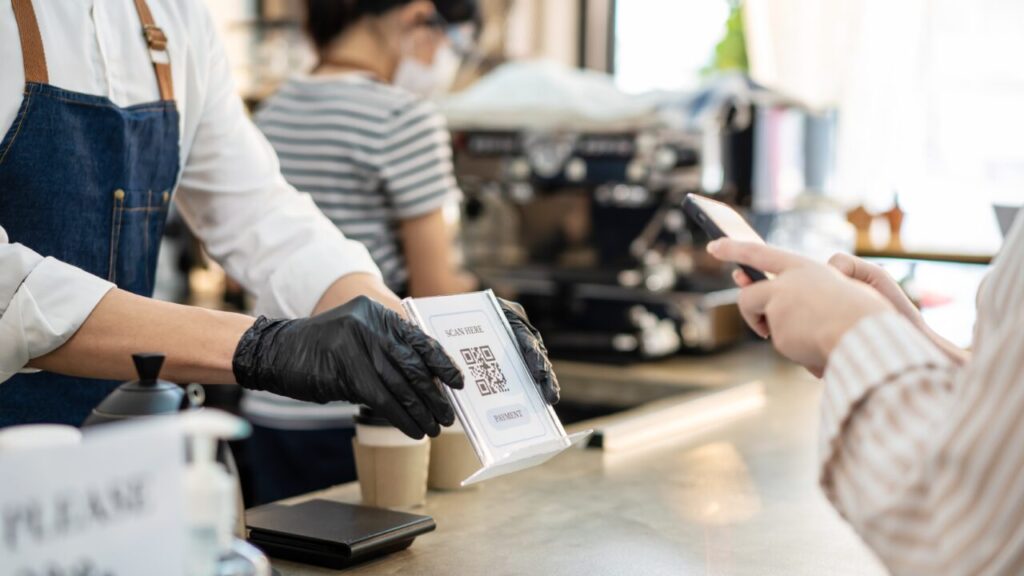If you are about to open a business that has a physical point of service or a point of sale, for example, a retail store, cafe or a restaurant or even a gym, you need to get acquainted with an easy point-of-sale (POS) system.
POS is a cash register system that processes sales and transactions at a point of sale. A point of sale system has all the same functions as a basic cash register – inserting items, adding taxes, creating and printing receipts, taking payments – but it can also do so much more for your business and customer experience.
POS software is designed to simplify sales operations, prevent financial and product losses, keep business under control, integrate business processes, and enable efficient, high-quality service to your customers no matter what business you are in.
In this article, we cover the definition of POS, the main benefits and features of POS, and what kind of additional options come with having a best POS system.
Definition of POS system
What is POS? Think of a computer or a smartphone to get a better understanding of the definition of POS system. POS is a physical device with software that has different functionalities and integration options that help you provide the best possible customer experience from your point of sale.
The POS system combines POS hardware and software that allow businesses to manage their sales in a convenient, all-in-one way. POS is a central, cloud-based system that combines everything needed to make the sales process and inventory management easier and faster.
The POS system has all the features of a cash register that is needed at a point of sale, but in terms of functionality, user experience, and additional features, it is significantly more capable. Just like you can connect your smartphone to a BlueTooth speaker or a TV, you can connect POS with different extras to make the service more seamless.
With a POS system, you have one central sales management system you can connect with a waiter app, kitchen display, credit card machine, or even third-party home delivery partners’ apps.

How is POS different from a cash register?
A cash register offers the basic functions needed to run a business. It provides a safe place where to hold cash, you can process transactions, print receipts, and at the end of the day print an overview of the day’s sales. There are basic integrations like barcode scanners and credit card machines but that’s about it.
A POS system on the other hand is a full sales software that does all mentioned above and so much more. From the business perspective, POS is much more valuable as a sales tool as it has more functionalities and a better user interface.
Pricing
Cost is also to be considered when choosing between a cash register and POS. Cash register machines usually come with a fixed price and a one-time payment. It may be important to know that mobile POS systems are mainly sold on a monthly pricing model, which means that the system is not bought out but rented, similarly to different online sales management tools.
Ease of use
Cash registers have limited functions and it makes them easy to learn and use for waitresses and salespeople. Cash registers usually operate on the principle that each product has a unique number. The salesperson must know these numbers by heart or look from the booklet.
POS allows you to define buttons for product groups, products, and different functions. The desired products are selected on the touch screen and that makes the sales process are very fast. The user-friendly interface has an intuitive design and is easy to use for your personnel.
Customer support
With the basic cash register, it is easy – you buy it, set it up, and use it. POS is software and has many more features and functionalities and in this case, having customer support is very encouraging. If you ever happen to run into some errors, you always know who to contact and you will get the issue sorted out quickly.
To better understand the definition of POS, let’s see what are the main features of POS.
Main features of POS
How can a POS be of help? The basic meaning of POS is to manage transactions but that is just a small part of what it can do. Here are the main features of a POS system in addition to processing transactions, that can help you manage and grow your business. The features create extra value both for retail and service-based businesses that have a physical point of sale.
Detailed analytics
One of the most useful features of POS is its detailed analytics. For a store or restaurant manager, a POS system gives a quick and convenient overview of the information they need and in the device that suits them – whether it be a mobile app or desktop device.
You have an overview sales, invoices, average invoices, number of visitors, loyalty card statistics, and many other business-critical metrics. And not just by the end of the day, but in real-time.
Moreover, it is not just rows of numbers that you get from it, but the information may also be easily visualized. You may create a number of detailed reports that may be customized to help you make smart business decisions quickly. As the business owner, you will surely value the benefit of detailed data about your business.
Marketing opportunities
POS helps to improve sales at your point of sale with targeted promotions and campaigns. A POS system supports marketing activities with its comprehensive CRM. You can analyze and execute promotions and create loyalty offers to treat regular customers.
This helps you keep your regular customers engaged and create a reason for them to keep coming back again and again. To your loyal customers, free coffee or a small discount from time to time is certainly a nice surprise that the customer will remember.
Plan and control your resources
Inventory management is usually a time-consuming and monotonous task, especially if you own multiple branches. But if you use a POS system it becomes a more pleasant activity, since the POS also has inventory management features. It is also perfect for franchise companies with multiple branches as it supports simple multi-level reporting, warehouse management, and centralized reporting.
POS inventory management provides an opportunity to have an up-to-date overview of your resource planning conveniently and in a short time. It helps you plan your stock in a smart way, so you will always have just the right amount.
You have the option to also set the minimum required stock quantities and, if desired, automatic ordering. This ensures that you will never run out of bestselling items in your retail store or key ingredients in your restaurant.

Additional features for restaurants
Having a POS in a restaurant is one of the most important business software that you can use there. For a restaurant owner, there are many additional features and integrations available that enhance the point of sale customer experience and streamline the work of waitresses and kitchen staff.
For a restaurant, a POS system has many additional features that will help you improve customer service. Based on the needs of a restaurant business, CompuCash offers many extras that add value to the core functionality and meaning of POS.
Taking orders from the table
Waitresses used to have to write the orders down on a piece of paper, but using a POS they can insert the items conveniently from a mobile tablet. This makes the process of taking orders faster as it is an important part of the overall customer experience.
For example, with the CompuCash POS app, waitresses can take orders from the table and send them from the app immediately to the kitchen or bar display and move on to the next table. This saves a lot of time both for hungry customers and busy waitresses, especially at rush hours, like lunch or dinner.
Table plan, open invoices, aggregation, and division of invoices
The waiter app delivers a special table plan and waitresses can add products to the invoices, line of accounts, and then split orders between different customers. This makes order and transaction management easier for the waitresses.
Customers can also pay, for example, partly in cash and partly by card if they wish. It may not be used often, but having this option shows that you value a great customer experience.
Kitchen order management
The waitresses can take customers’ orders by course or mark courses later. In addition, the special requirements, like allergies or food intolerances of customers can be marked separately.
You may integrate the waiter app with kitchen printers and touch screens to manage orders, and even paging systems can be added. This makes it easy for customers to get the attention of the waitress and shortens their waiting time.
Delivery app integration
Due to the recent lockdowns in various countries, the popularity of ordering restaurant food home has increased rapidly. Since the service is very convenient many people will continue to use that. With POS it is possible to integrate your system with the delivery apps’ and make online ordering effortless both for your staff and the customers.
With the integration, if the order is placed from a third-party delivery app, the information will be automatically sent to your POS or even kitchen display.
If you are using POS from CompuCash, you can connect with all the most popular food delivery companies in the UAE. For example, Deliveroo, Talabat, Zomato, Carriage, and more.
Conclusion
When you are opening a restaurant or retail store, you need a point of sale system. What is the meaning of POS? In short, the definition of POS is software that helps you manages sales, inventory, and offers valuable data. Cloud-based POS system has easy to use interface across different desktop and mobile devices.
It has all the functionalities of a cash register but thanks to software it allows you to do so much more. It is one central place where to process and later analyze sales, manage inventory and restocking needs, and also it improves the collaboration between different departments.
POS systems have proven to be especially useful in the food business. Having the POS in a restaurant significantly improves the flow of information between waitresses and the kitchen as POS automatically sends information from the waiter app to the kitchen display. This reduces waiting times for the customers and reduces time pressure on waitresses during rush hours.
To get more out of the POS, there is a selection of integrations from which to choose. You don’t have to use all additional options from the start, since it is software, it can grow with your business.
In the end, POS is more about providing excellent customer service, than just handling transactions. How fast you take the order or find information about items in stock, how long is the waiting time, how conveniently customers may split checks and choose among different payment methods, what kind of loyal customers benefits they get, ultimately affect their experience.
Outstanding experiences should be part of every business that you should think about right from the beginning. POS is a key part of combining different aspects of sales and customer service.

Looking for a Delivery Integrated Point of Sale solution?
Ask our specialist Marc for more info +971 50 566 5278 or write [email protected]

